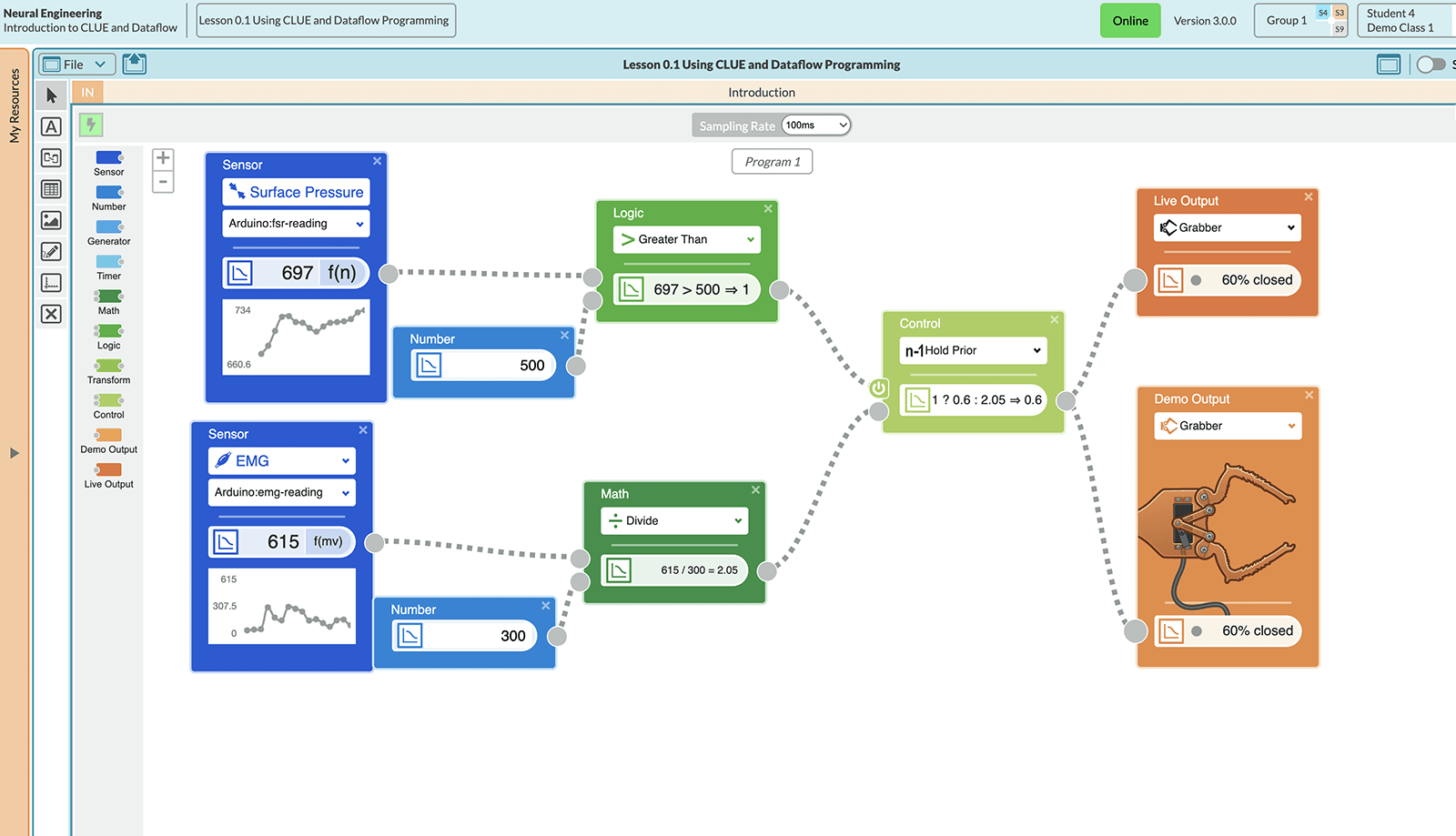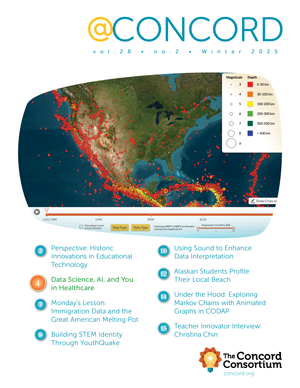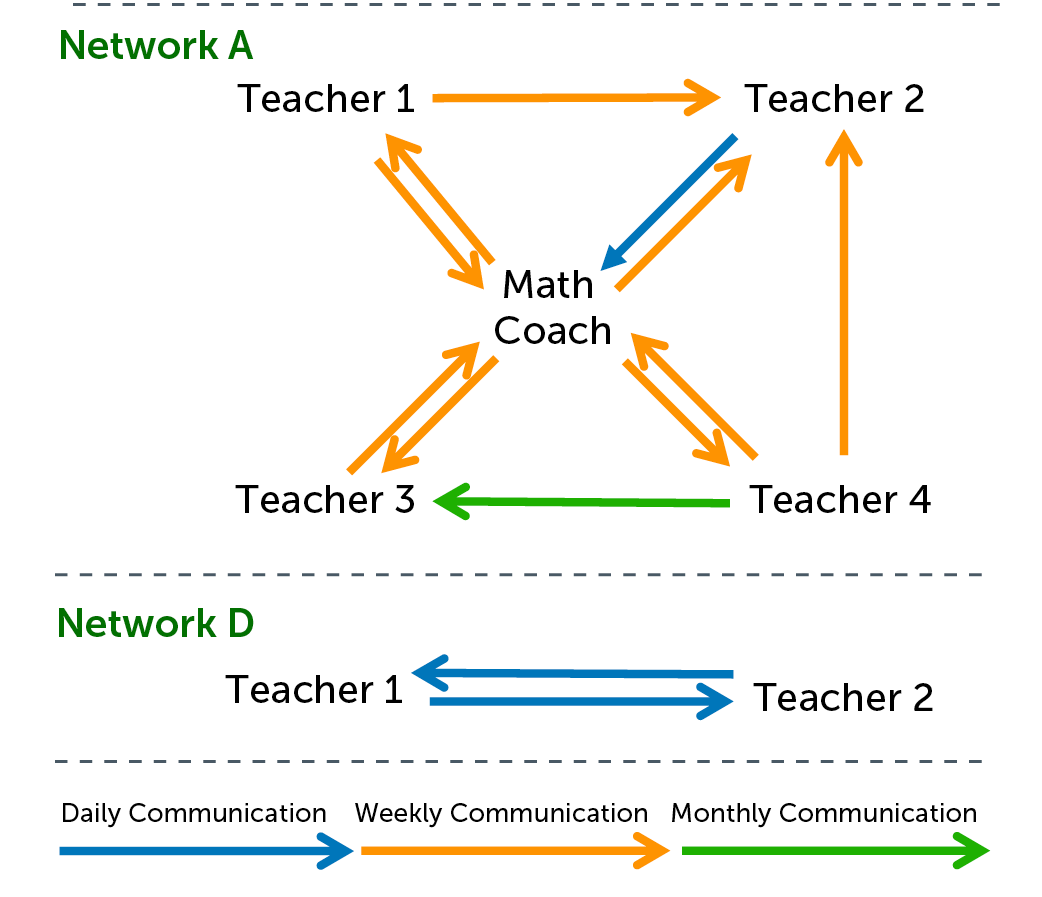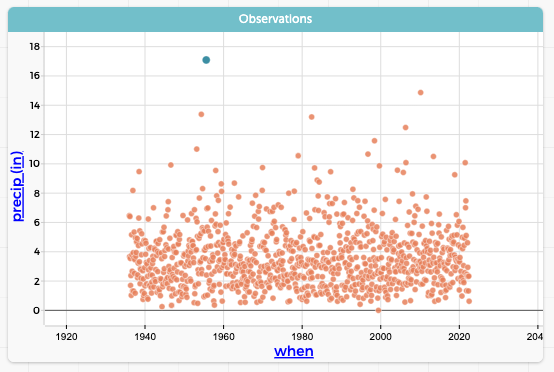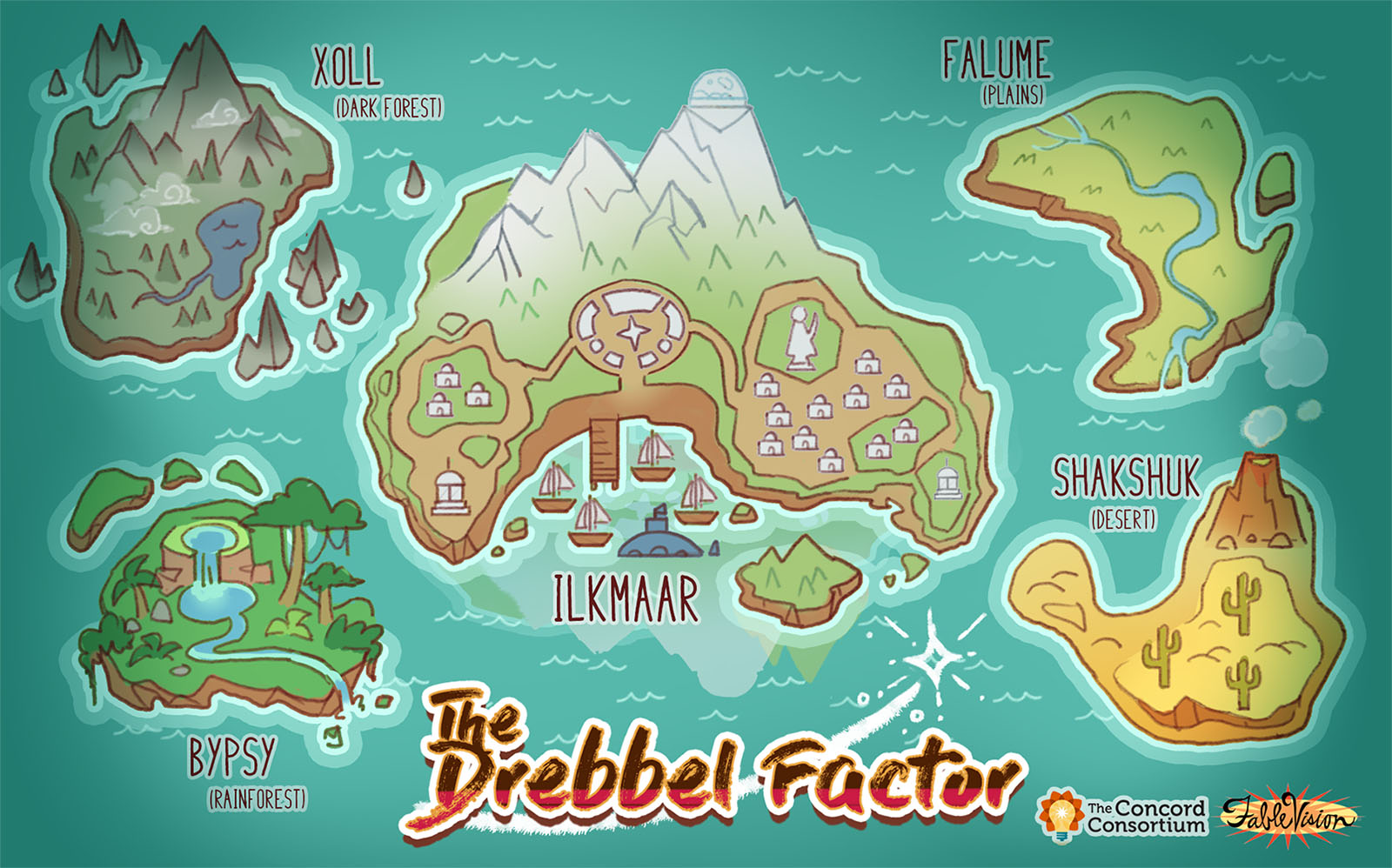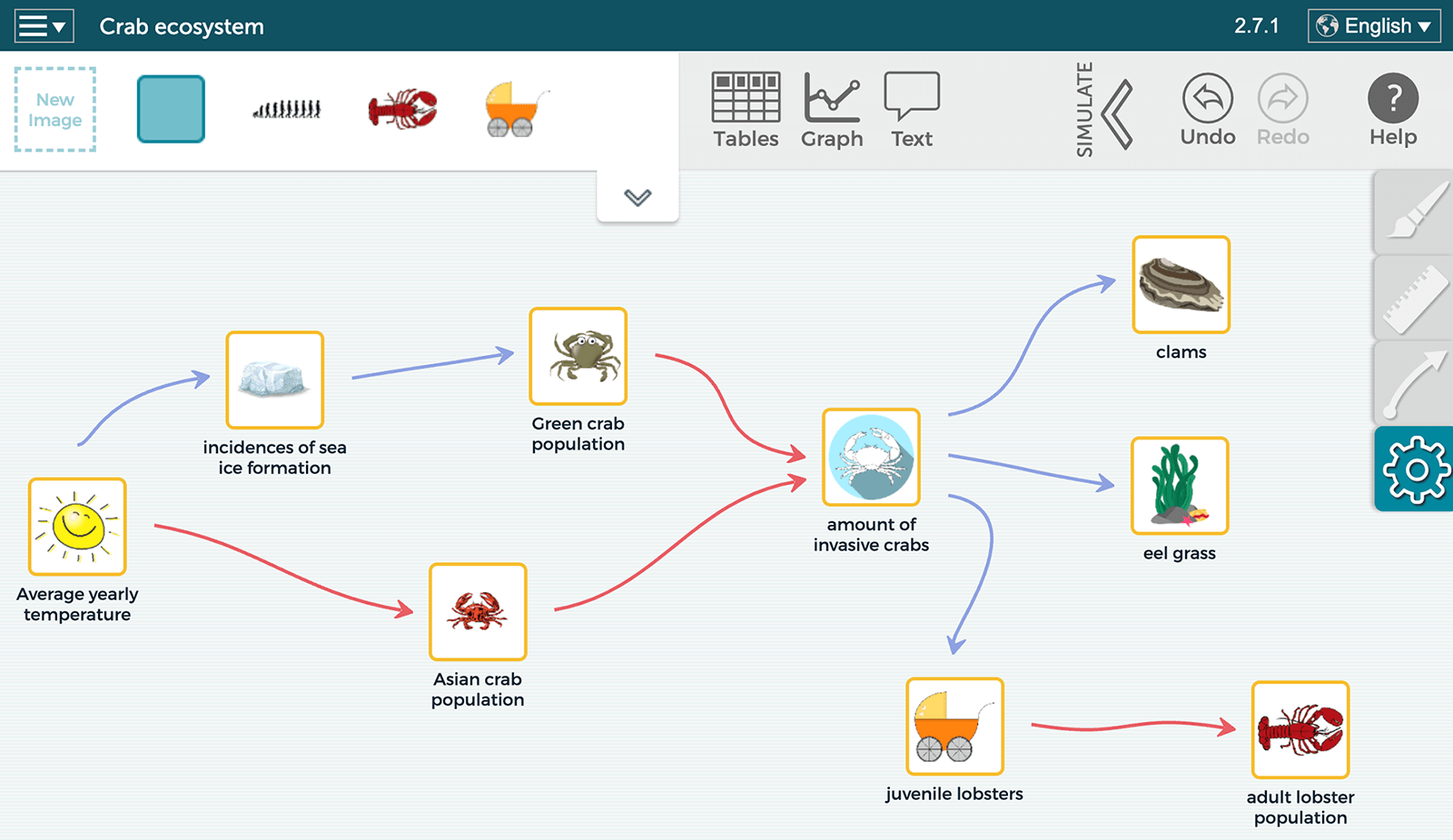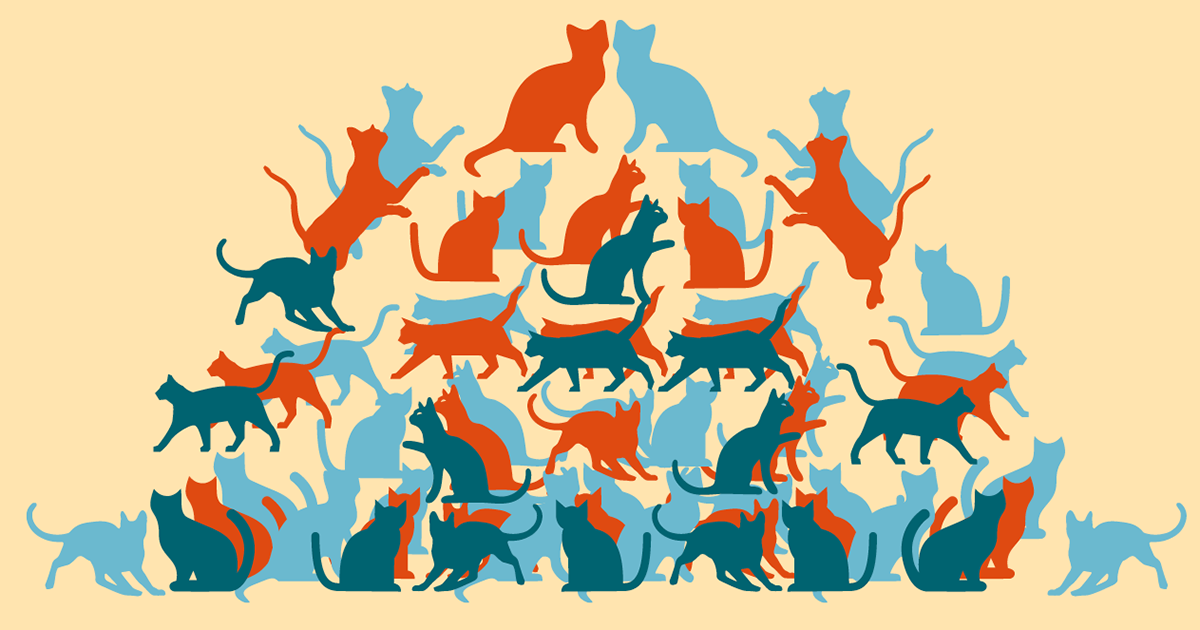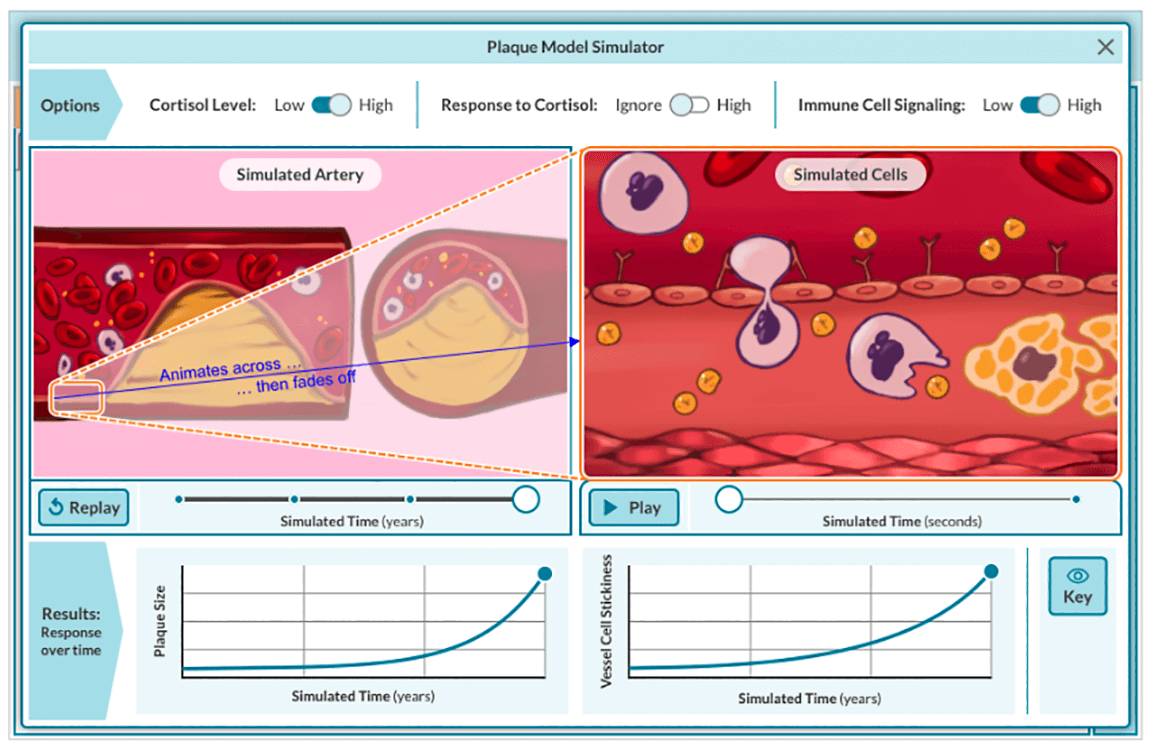K-12 Data Science Education, Developing a Modeling Orientation to Science, Math Modeling with M2Studio, and more in Fall @Concord
Perspective: Taking Pandemic Lessons Learned into the Future
For many schools, teachers, and students, this fall marks the return of a degree of normalcy after almost three years. However, even as we embrace the welcome familiarity, we recognize that everything has changed. While education faces many challenges as it rebounds from the pandemic, new perspectives also make space for new opportunities. There may be no better moment to consider the potential technology holds to transform education.
How Do Teachers in Networks Use Digital Resources?
The Concord Consortium and Michigan State University are developing the Collaborative Learning User Environment (CLUE), a multi-featured digital platform designed to support groups of students working together to solve mathematical problems. Teachers have access to an embedded teacher guide and an additional suite of features for planning, teaching, and reflecting on their instructional practice.
Monday’s Lesson: When It Rains, Does It Always Pour?
After months of drought in the Boston area, a sudden rainstorm dumped a large amount of rain in a short time, flooding parking lots and roadways (and one of our basements). The intensity was incredible, but was the weather event itself “extreme”? Climate scientists define extreme as a measurement within the top or bottom 5% or 10% of all records for that date.
K-12 Data Science Education: A Recipe for Success
Data is at the heart of decisions made across all sectors of society, and K-12 education is beginning to take notice. While ensuring that all students learn to work with data fluently is crucial, the path to doing so is unclear, and many open questions exist. Answering them demands cutting-edge research, extensive testing and implementation, and collaboration across many different groups. The Concord Consortium is proud to be at the center of this work with several new initiatives and research projects.
Developing a Modeling Orientation to Science
When I first heard the phrase “developing a modeling orientation to science,” it struck me as a little odd. As a former high school science teacher for over 20 years, it felt redundant, like suggesting that someone in a pool should “develop a water-based orientation to swimming.” One might argue that the primary activity of doing science is creating models to explain and make predictions about natural phenomena. However, given how difficult it has been to transform science education from courses that “cover” lots of content to inquiry-based investigations of phenomena using both the tools and practices of scientists, perhaps “developing a modeling orientation to science” is not so peculiar.
Math Modeling with M2Studio
If nothing else can cheer Lila up, cats always do. One day, while scrolling through cat photos online, the ninth grader stumbles onto a poster with a shocking message: “One pair of unspayed/unneutered cats and their offspring can produce 420,000 cats in just seven years.” Lila’s mind is racing with questions: Is that possible? How did they come up with that number? Did they assume unlimited food for all the cats to survive?
Under the Hood: Using Brain Signals in a Block Programming Environment
It’s a hot late August day and your neighbor’s kids have set up a lemonade stand. After paying your quarter, you reach for a cup. As you lift it, you sense the paper cup is thin, so you tip it gingerly and take a sip—delicious! But how did the idea of picking something up become motion in your arms and fingers? And how did you know to grasp the cup just enough so it wouldn’t be crushed or slip out of your hand?
Teacher Innovator Interview: Jessica Sudah
Jessica Sudah is a self-described introvert, but she says, “I found my voice in the classroom. I found myself in the classroom.” When Jessica discovered that the goal of the Bio4Community curriculum was to honor student voices and experiences, she wanted to learn more.
News at Concord Consortium
The latest news from the Concord Consortium in fall 2022: New projects include Mobile Design Studio, Investigating Mathematics Learning in a Digital Environment Over Time, Data Science Foundations with Mathematical Logic for Rural High School Students, and Developing Simulations with Noise to Investigate Students’ Understanding in Experimental Physics
